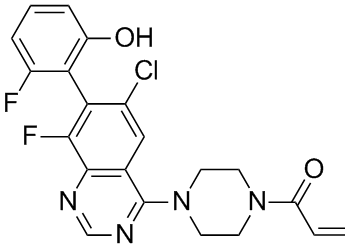Finally, the core principles of medicine such as nonmaleficence, respect of autonomy and  justice all demand greater efforts by journal editors to improve the quality of reporting and trial registration. For the field of psychiatry, which addresses an immense patient population with one of the world’s highest burdens of disease, major improvements have to be made with respect to how the majority of journals inform and require their authors to adhere to a high quality of reporting and adequate trial registration. Our review indicates that the top-10, high impact psychiatry journals demonstrate more interest in high quality publications. But also among these flagships of psychiatry journals more could be done to enforce the AbMole D-Pantothenic acid sodium registration, improve the reporting, and finally facilitate unbiased translation of clinical research findings. In the face of this challenge, efforts to combat AMR have shifted to antimicrobial stewardship in an effort to decrease selection pressure for AMR rather than the development of new agents to treat resistant organisms. Primary hepatocellular carcinoma is the sixth most common cancer worldwide in terms of numbers of cases of 626,000, and the third most common cause of death from cancer. The poor prognosis of HCC-patients often connected with late diagnosis and limited therapeutic strategies. The molecular pathogenesis underlying HCC in humans remains poorly understood. Thus, finding some novel molecular markers and studying their functions in HCC may be helpful to understand this neoplasm and adopt new therapeutic options. B-cell translocation gene 3 belongs to an antiproliferative B-cell translocation gene/Transducer of ErbB2 gene family, which also includes BTG1, BTG2/ TIS21/PC3, Tob, Tob2 and PC3b in human cells. These proteins all contain two short conserved domains in their Nterminal part, separated by a spacer sequence of 20-25 non-conserved amino acids. So far, Evidences for the family not only inhibiting cellular proliferation and differentiation, but also AbMole Lomitapide Mesylate involving in the regulation of tumorigenic progression have been reported. Overexpression of BTG4 can suppress colony formation in colorectal cancer cells and its expression is frequently downregulated in primary gastric cancers. PC3/BTG2 mRNA is highly expressed in HCC cells and its expression is related to the degree of cell differentiation. TOB plays an important role in the suppression of breast cancer tumorigenesis. Loss of BTG3 expression correlates with the development of lung adenocarcinoma, oral squamous cell cancer or prostate cancer. Aberrant epigenetic regulation of BTG3 promoter, such as by DNA hypermethylation and/or histone modification is observed in several human cancers. Till now, only two recent papers have discussed the function of BTG3 in tumor.
justice all demand greater efforts by journal editors to improve the quality of reporting and trial registration. For the field of psychiatry, which addresses an immense patient population with one of the world’s highest burdens of disease, major improvements have to be made with respect to how the majority of journals inform and require their authors to adhere to a high quality of reporting and adequate trial registration. Our review indicates that the top-10, high impact psychiatry journals demonstrate more interest in high quality publications. But also among these flagships of psychiatry journals more could be done to enforce the AbMole D-Pantothenic acid sodium registration, improve the reporting, and finally facilitate unbiased translation of clinical research findings. In the face of this challenge, efforts to combat AMR have shifted to antimicrobial stewardship in an effort to decrease selection pressure for AMR rather than the development of new agents to treat resistant organisms. Primary hepatocellular carcinoma is the sixth most common cancer worldwide in terms of numbers of cases of 626,000, and the third most common cause of death from cancer. The poor prognosis of HCC-patients often connected with late diagnosis and limited therapeutic strategies. The molecular pathogenesis underlying HCC in humans remains poorly understood. Thus, finding some novel molecular markers and studying their functions in HCC may be helpful to understand this neoplasm and adopt new therapeutic options. B-cell translocation gene 3 belongs to an antiproliferative B-cell translocation gene/Transducer of ErbB2 gene family, which also includes BTG1, BTG2/ TIS21/PC3, Tob, Tob2 and PC3b in human cells. These proteins all contain two short conserved domains in their Nterminal part, separated by a spacer sequence of 20-25 non-conserved amino acids. So far, Evidences for the family not only inhibiting cellular proliferation and differentiation, but also AbMole Lomitapide Mesylate involving in the regulation of tumorigenic progression have been reported. Overexpression of BTG4 can suppress colony formation in colorectal cancer cells and its expression is frequently downregulated in primary gastric cancers. PC3/BTG2 mRNA is highly expressed in HCC cells and its expression is related to the degree of cell differentiation. TOB plays an important role in the suppression of breast cancer tumorigenesis. Loss of BTG3 expression correlates with the development of lung adenocarcinoma, oral squamous cell cancer or prostate cancer. Aberrant epigenetic regulation of BTG3 promoter, such as by DNA hypermethylation and/or histone modification is observed in several human cancers. Till now, only two recent papers have discussed the function of BTG3 in tumor.
Recent evidence demonstrates that BTG3 plays a suppressive role in cancer progression
Leave a reply